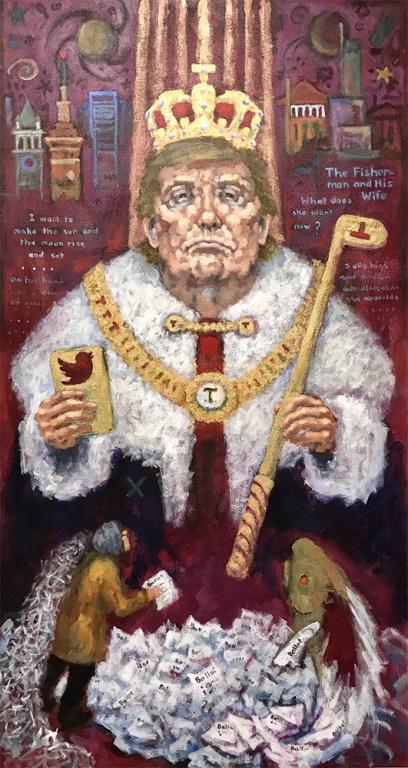Could Donald Trump be the Antichrist? This is a question that has ignited passionate debate and deep theological exploration, particularly within Christian circles, as his political actions and persona continue to polarize the nation.
The intersection of politics and religion, particularly in the context of the United States, is a complex and often volatile landscape. Donald Trump, a figure whose presidency reshaped the American political scene, has become a lightning rod for such discussions. His supporters, forming a significant faction within the Republican Party, demonstrate an unwavering loyalty, often described in terms of a cult of personality. This devotion, coupled with his often-provocative rhetoric and policies, has led some to draw comparisons between him and the biblical figure of the Antichrist, a harbinger of evil foretold in Christian scripture.
The arguments for and against this comparison are varied and often rooted in differing interpretations of biblical prophecy and contemporary political events. Those who perceive Trump as a potential Antichrist often point to his perceived disregard for traditional moral values, his divisive rhetoric, and his charismatic appeal to a devoted base. They might cite specific actions or statements that they believe align with prophecies about a deceptive and powerful figure who will ultimately lead the world astray. Conversely, those who reject this interpretation often emphasize the importance of avoiding political demonization and adhering to a more literal understanding of scripture. They might argue that applying such labels is a form of political maneuvering that distracts from genuine theological inquiry and promotes division within the Christian community.
The debate surrounding Donald Trump and the Antichrist also highlights the broader challenges of navigating faith and politics. Many Christians find themselves grappling with how to reconcile their religious beliefs with their political allegiances, particularly when faced with leaders who seem to embody both admirable and objectionable qualities. The question of whether a political figure can be viewed as a fulfillment of biblical prophecy is not new, and the answers often reflect deeply held theological beliefs, as well as individual interpretations of the Bible and the state of the world.
The White House, under the Trump administration, made efforts to appeal to the Christian base and to the broader religious community. These efforts included policies and statements aimed at protecting religious freedom and promoting traditional values, and these actions have been interpreted by some as a deliberate strategy to garner support from a powerful voting bloc.
The views of US voters, particularly those who identify as White Christians, differ significantly depending on their political affiliations. These differences are largely shaped by their perspectives on the role of faith in the public sphere, their concerns about cultural and social issues, and their evaluation of competing political candidates. The 2024 presidential election, like others before it, underscores the powerful influence of religion on American political discourse, which is shaping elections.
Within the broader context of the American political landscape, the discussion around Donald Trump and the Antichrist serves as a stark reminder of the intersection of politics and religion. As the nation continues to navigate this terrain, the ability to engage in respectful dialogue, critically evaluate information, and discern between genuine theological inquiry and political manipulation will be critical.
To clarify the positions and the viewpoints on Donald Trump in the public domain, here is a collection of information,:
| Attribute | Details |
|---|---|
| Full Name | Donald John Trump |
| Born | June 14, 1946 (age 77) |
| Place of Birth | Queens, New York City, U.S. |
| Political Party | Republican Party |
| Political Positions |
|
| Notable Actions/Policies |
|
| Criticisms |
|
| Key Supporters |
|
| Notable Opposition |
|
| Controversies |
|
| Website for Reference | Wikipedia - Donald Trump |
The political demonization and the projection of biblical concepts onto political figures, such as the label of the Antichrist, are often used in political debates. This approach is common with polarizing figures like Donald Trump. The use of such terminology reflects a range of views, from profound theological belief to strategic political messaging.
The concept of the Antichrist itself has a rich history rooted in biblical scripture and theological discourse. It has been interpreted in multiple ways throughout history and is often associated with a figure of great power and deception. In the context of contemporary politics, the label is used to express deep concern about the actions of a political leader.
Evangelical Christians form a significant part of Donald Trump's support base. Their political views are influenced by their faith, with many favoring conservative stances on social issues and aligning with the Republican Party.
The debate on whether Donald Trump is the Antichrist or not is an example of how religious and political discourses intersect. It shows the challenges and sensitivities in using religious concepts to interpret and comment on political events.



